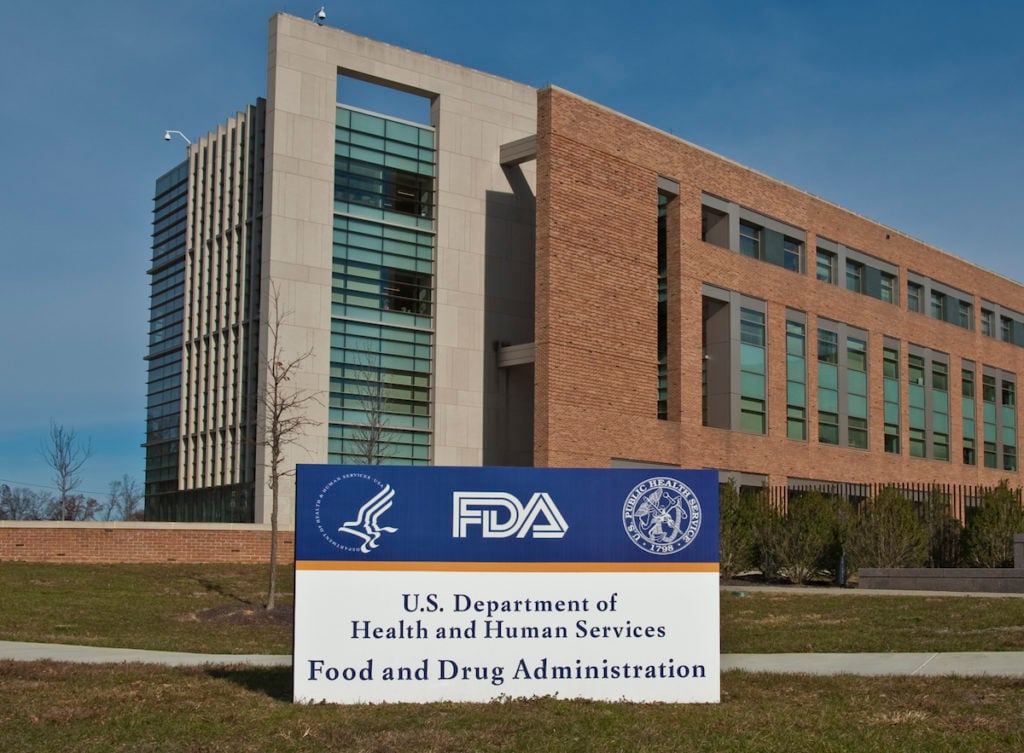
The Food and Drug Administration is planning to allow sexually-active gay men in monogamous relationships to donate blood under guidelines being drafted, according to the Wall Street Journal. Photo: FDA
The Food and Drug Administration is planning to allow sexually-active gay men in monogamous relationships to donate blood under guidelines being drafted, according to the Wall Street Journal.
Under current policy, the FDA requires all gay and bisexual men to stop having sex for three months before donating blood.
This restrictive policy was created in 2020 after gay and bisexual men were banned from donating blood for decades due to irrational and unscientific HIV fears.
For years, medical experts have said that limiting blood donations from gay and bisexual men is outdated and stigmatizing.
New guidelines for gay men?
In a statement about the Wall Street Journal’s reporting, the FDA said they are still evaluating their policy.
“The FDA remains committed to evaluating alternatives to the time-based deferral policy by helping to facilitate the generation of the scientific evidence that might support an individual risk assessment-based blood donor questionnaire,” the FDA said.
The FDA’s possible guideline changes come after an agency—funded study of approximately 1,600 gay and bisexual men examined whether an individualized-risk assessment would be as effective as time deferrals in keeping the blood supply safe, according to the Wall Street Journal article.
The study, conducted by three of the largest nonprofit blood centers in the U.S. — Vitalant, OneBlood and the American Red Cross — was finished earlier this year. Study participants in the were asked whether they had more than one sex partner during specific periods, the type of sexual activity they engaged, and whether they used condoms, among other questions.
In the same statement, the agency said the study “has generated data that will help the FDA determine if a donor questionnaire based on individual risk assessment would be as effective as time-based deferrals in reducing the risk of HIV.
“Although we do not have a specific timeline for when our analysis will be complete, the agency believes the initial data from the study, taken in the context of other data available from blood surveillance in the U.S. and in other countries, will likely support a policy transition to individual risk-based donor screening questions for reducing the risk of HIV transmission.”
The FDA added that it will announce results from the study and new guidance on blood donor policies in the coming months.
End the gay blood ban
Sarah Kate Ellis, president and CEO of GLAAD, said an updated policy is long overdue.
“As LGBTQ leaders and medical experts have been saying for years: bans and restrictions on blood donations from gay and bisexual men are rooted in stigma, not science,” Ellis said in a statement.
“Giving one set of rules to some people, and another set of rules to others, based purely on identity, is blatant discrimination.
“There is no excuse for choosing stigma over science in 2022,” Ellis said.
The Biden administration indicated in January that they were open to amending the policy banning men from donating blood if they’ve had sex with another man in the past three months.
The policy’s history dates to the beginning of the HIV epidemic in the 1980s.
In 1985, the FDA put a lifetime donation ban on men who have sex with men; however, in 2015, that was changed to a requirement for 12 months of celibacy before donation, due to advances in HIV testing.
In 2020, the policy was changed again due to blood shortages early in the COVID-19 pandemic.
Unprotected anal sex presents a higher risk of HIV transmission than other forms of sex, the Centers for Disease Control and Prevention has said.
3 month waiting period
The FDA has said three months is an adequate wait time because an HIV infection would be apparent within that window.
But HIV testing has improved over the years. Blood centers such as the American Red Cross test donations for HIV, hepatitis B and C and other viruses.
Some tests look for the presence of antibodies to HIV, indicating that a person was exposed to the virus. Other tests measure the amount of virus in the blood.
None of the tests can detect HIV immediately after infection, but it would not take 90 days to detect HIV. That window is much smaller, infectious-disease specialists have said.
